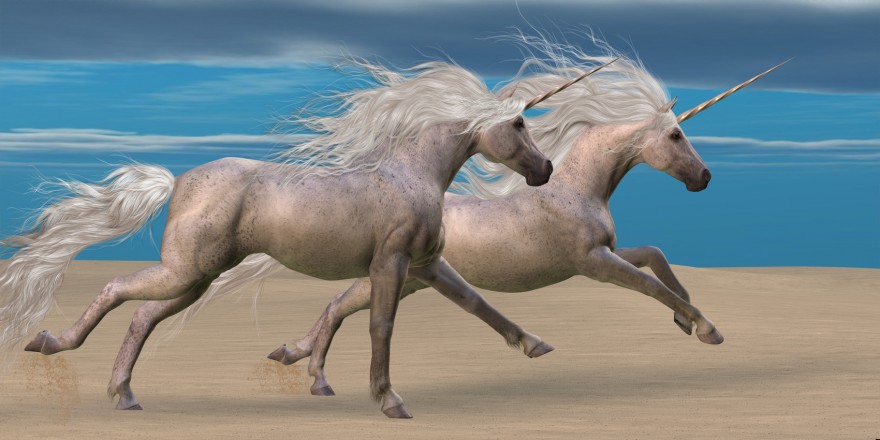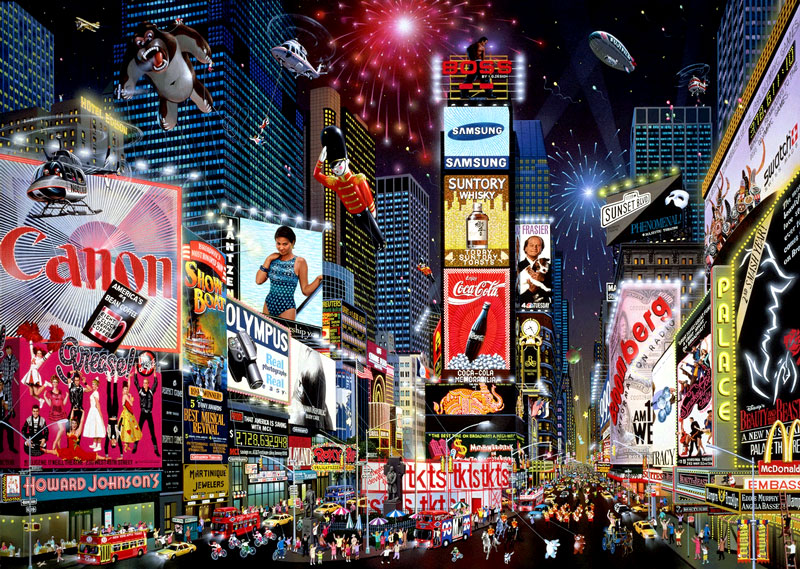The main thrust of human endeavour is to create and maintain the world that supports and validates the particularized ego or self. This is what we’re at and let no one tell you otherwise! It is customary to say (or think) such things as ‘the thrust of human endeavour is to seek knowledge’ or ‘the thrust of human endeavour is to work towards happiness and fulfilment and the greater good’ (or whatever the formula might be) but all of this is patently untrue – all of our resources are being put towards the task of creating a world that validates and supports the ego or self and such a world (inasmuch as it can be called ‘’a world’) is entirely incompatible with insight, happiness, well-being, good humour, or any sort of ‘good’ at all! These qualities are not those of the particularized ego or self; naturally these are not qualities that can be realistically attributed to a mere mental construct, no matter how highly cherished and collectively-validated that construct might be!
If our interest was in genuine insight, genuine understanding and genuine well-being then we would put our efforts in the direction of fostering the understanding of the ‘larger’, ‘nobler’ (and also more realistically true) sense of who we are but this is absolutely not what we are doing – very little if any of what we do is geared towards this end. From the collective point of view none of what we do is geared towards this end! The ‘larger’ sense of who we are is the sense that is based upon our interconnectedness rather than our separateness and this ‘more spacious’ (or ‘less limited’) understanding of ourselves is repressed, denied, buried, ignored. Instead, we are taught to focus exclusively on the abstract, bounded sense of ourselves, which is the picture that is provided for us by the concept-using mind. This is what ‘the particularized ego or self’ is – it is a mind-created abstraction, it is a ‘convenient oversimplification’…
When we are identified with this abstraction everything we do (naturally enough) is based on the premise that the abstract or concrete self needs to be the beneficiary of all actions. That is our basic orientation, needless to say. The whole of society runs on this principle – the whole of society runs on the principle of ‘selfishness’ (where the ‘self’ in question is a mind-created abstraction that has no actual reality of its own). We are told from an early age to be this abstract, bounded, unreal self; this understanding is implicit in everything we are taught, it is implicit in all human relations. This isn’t primarily a social construct however – it is rather an innate and fundamental psychological disposition. It is an innate and fundamental psychological disposition which is heavily reinforced by the system which we call society! What’s more, our innate nature also contains the possibility of other orientations (creativity, compassion, humour, intuition) and these dispositions are largely denied by society; we are brought up to distrust at our own intuitions and only go on what their collective mind says – this process begins at school and is further refined in college and university. Creativity – as is very often pointed out – similarly repressed by the collective; and a trivia level it is valued (or contained’), but when it comes to questioning the way we actually do things (on a bigger scale) it is definitely discouraged! The one rule that is never mentioned but nevertheless always paramount is never question the system’ and that is creativity (by its very nature) always does. We aren’t creative ourselves in our everyday lives – we absorb creativity (so-called) off the shelf from the designed environment, only it isn’t ‘creativity’ at all but only the lower analogue of that quality, which is what we might call ‘superficial novelty’. It’s ‘formulaic creativity’.
We then come to the next thing on a list of ‘repressed qualities’ which is compassion. Compassion, altruism, and moral behaviour are of course talked up all the time but this is mere lip service. We only need to look around us to see that it is merely lip service! Naturally it’s only lip service since ‘the abstract or concrete self’ it is constitutionally unable to be genuinely kind or friendly or compassionate or altruistic or anything like that. The abstract or concrete self is constitutionally unable to be genuinely anything! This ought to be obvious – the self can only ever be selfish. What else could we expect of it? How can the abstract self (which is like a mask or an act) ever reach out beyond itself to miraculously become unselfish? It would have to become what it is not in order to do this; it would have to ‘give itself up’ and that is the one thing that it can’t do of its own accord. That is the one thing it will never do – the act can never get rid of itself. When it comes to compassion and consideration and ‘unselfish behaviour’ all the self can ever do is put up a convincing but insincere performance therefore; all it can ever do is ‘keep its natural tendencies in check’ and this is – of course – what ‘morality’ means to us! This is what we are taught to do – we are taught to deny our actual ‘selfish’ nature and keep all these self-aggrandising tendencies of ours firmly in check. Only this can’t ever really work since ‘keeping ourselves in check’ automatically sets up resistance that one day will burst its banks and turn everything upside down. Purposeful morality always has this dubious quality – when it ‘works’ it is contrived and not ‘from the heart’, and the price of it ‘working’ in this way is that it will periodically burst out of its confines and show its true, distinctly unpleasant nature.
Being truly unselfish (or ‘generous’) isn’t a matter of forcing of course – if we have to force it then it isn’t true! What could be simpler to understand than this? Or we could say that what is needed is that we should come from a real place rather than an unreal one – all that’s needed is that we should come from the place of being who we really are, rather than from a place of being who we think we are, or pretend we are. What we need to do is to ignore all the conditioning (which, as Alan Watts says, simply double-binds us) and instead of cultivating the ‘small’ (or ‘bounded’) sense of who we are, cultivate the ‘large (or ‘unbounded’) sense of ourselves. So far it might well sound that what we are talking about is a kind of global or societal conspiracy to make us believe that we are the isolated little ego-self, and in a way this is perfectly true. As we have just said, our social structures have the function of reflecting and amplifying a tendency that is already there. This tendency is part of what it means to be human being, but it is only ‘a part’, even if in society it is the only part we collectively recognise, encourage and support.
What causes us to go down this road is simply that we pay exclusive attention to what thought shows us, and act as if nothing else exists. In one way it could be said that this isn’t really our ‘fault’ inasmuch as thought itself tells us (in an implicit rather than an explicit way) that there is nothing else apart from what it informs us there is. If thought did acknowledge that there was ‘something else other than what it informs us there is’ then it wouldn’t be operating as thought, obviously enough! That would be like an arrow that says where it isn’t pointing is just as important and interesting is where it is pointing, or it would be like a rule that allows for the possibility that not obeying its instructions is just as valid as faithfully doing what it directs us to do. So what we have here is a very neat type of loop – we don’t know that there is anything outside of thought because thought tells us that there isn’t. As soon as we fall under the influence of thought we become unable to see outside of this influence, we become unable to see that there is any domain other than the domain it constantly tells us about.
When we are under the ‘influence’ of thought then we only know what thought shows us, and thought only ever shows us an abstract representation of reality. Another way of putting this is to say that we never see beyond the artificial boundaries or limits that thought slaps on the world and these artificial boundaries or limits are what create the illusion of the concrete or abstract self. Obviously this is what creates the illusion of the abstract or concrete self – if we weren’t allowing ourselves to believe only in what thought shows us then instead of the small-minded fragmented isolated sense of (illusory) identity that we are normally stuck with then we would have an incomprehensibly more spacious, ‘non-concrete’ sense of who we are, which is necessarily a sense that we can’t really say very much about. Identity is a fixed, defined kind of thing and that’s why we can talk about it at such great length. What on the other hand can we say about ‘spaciousness’, other than that it is ‘spacious’?
We opt for identity rather than spaciousness because we can talk at length about identity; because we can say what it is and what it isn’t. That’s where our sense of security lies; that’s the ‘plus’ side of the deal. The ‘minus’ side of the deal is that what we are talking about isn’t actually real – it is who we aren’t and never could be, and that is one hell of a downside for us to have to cope with! Downsides don’t come any worse than that. Whilst it is true that we can’t hang on to ‘unlimited spaciousness’ in the way that we can hang onto limitation (and that this is – in a curious way – ‘inconvenient’ to us) it is also true that what we can’t point to and can’t hang onto is real, and is ‘who we really are’, which is a not inconsiderable point. All sorts of trouble comes from cultivating the unreal and saying that it is ‘the only reality there is’, whilst endless blessings proceed from not doing this…
Art: Philip Morris/animus4.com






